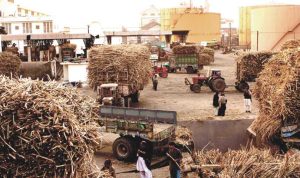Discover the sweet financial story of Ansari Sugar Mills, a leading player in the sugar industry. In this article, we’ll delve into the company’s financial performance, exploring its revenue, profitability, debt, and key financial trends.
A Brief Introduction
Get to know Ansari Sugar Mills, its history, industry, and location. Understand why financial performance matters for investors, stakeholders, and industry analysts.
Revenue: The Sweet Spot
- Explore Ansari Sugar Mills‘ revenue trends over the years
- Break down revenue sources: domestic sales, exports, and other income
- Analyze factors driving growth or decline: market conditions, pricing strategies, and product mix
Profitability: The Bottom Line
- Calculate key profitability metrics: gross profit margin, operating profit margin, and net profit margin
- Assess the company’s ability to generate profits and manage costs effectively
- Compare Ansari Sugar Mills‘ profitability to industry benchmarks
Debt: Managing the Load
- Evaluate debt levels and structure: short-term and long-term debt
- Calculate debt ratios: debt-to-equity ratio and interest coverage ratio
- Assess the company’s ability to service its debt obligations
Financial Ratios and Benchmarking
- Calculate relevant financial ratios: return on equity (ROE), return on assets (ROA), and current ratio
- Compare Ansari Sugar Mills’ financial performance to industry peers and historical benchmarks
Key Financial Trends and Insights
- Identify significant trends in financial performance: increasing revenue, improving profitability, or changes in debt levels
- Discuss underlying factors driving these trends
- Assess the company’s financial health and future prospects
Diving Deeper
- Explore the impact of industry factors: sugarcane prices, government policies, and global sugar market trends
- Compare Ansari Sugar Mills’ financial performance to competitors in the Pakistani sugar industry
- Discuss key factors that could impact future financial performance”






